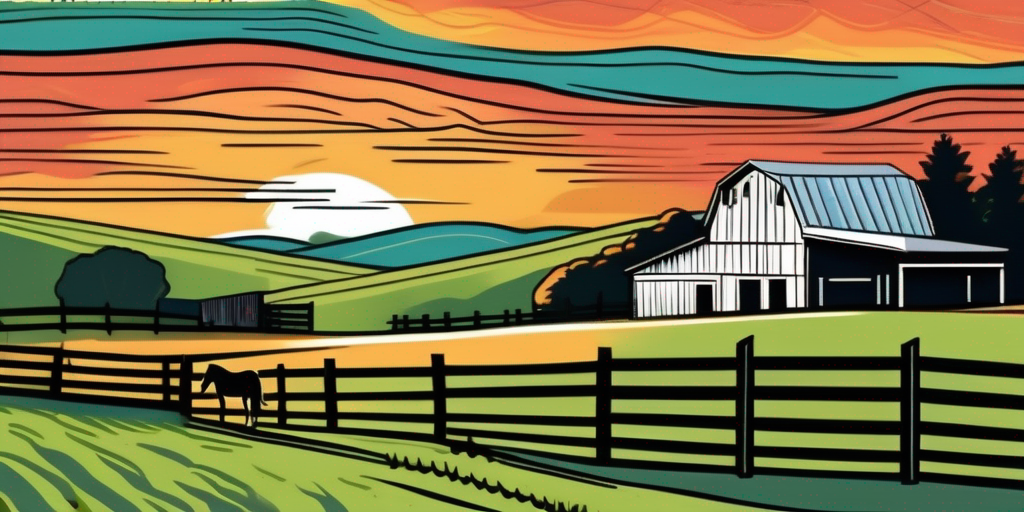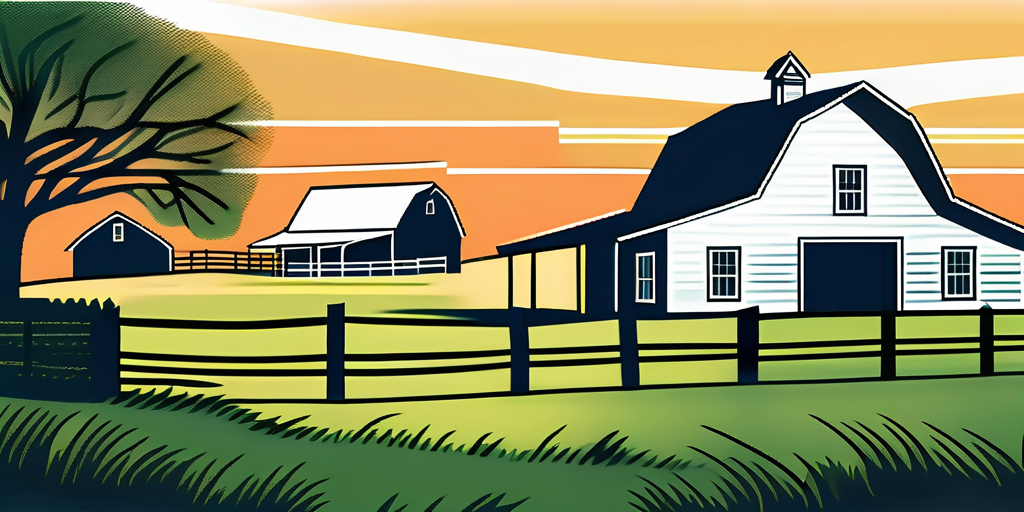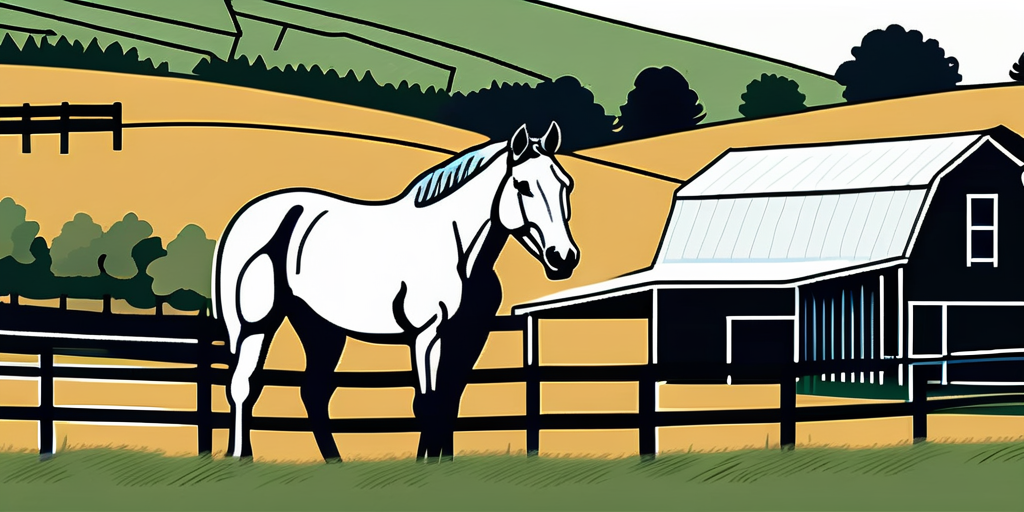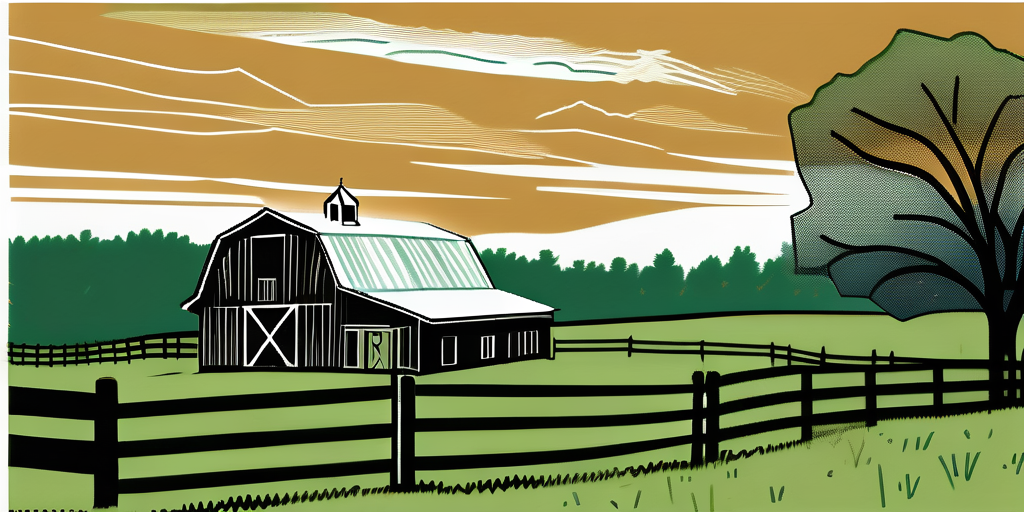
If you're an equestrian enthusiast considering a move to Tennessee, you're in for a real treat! Known for its rich traditions, scenic landscapes, and friendly communities, Tennessee offers some of the best horse properties around. In this guide, we'll dive into the unique aspects of owning horse properties in the Volunteer State, from its alluring culture to practical buying tips.
One of the primary reasons many horse lovers are drawn to Tennessee is its unique equestrian culture. With a deep-rooted history in horse riding, Tennessee has cultivated an environment where equestrian activities are celebrated and fostered.

Across the state, you’ll find numerous events, shows, and competitions that highlight horse riding, from rodeos to dressage. Local communities often come together to celebrate various breeds and disciplines, making it easy for newcomers to make friends and become part of the family. Additionally, many towns host annual fairs and festivals that include horse parades and exhibitions, showcasing the talents of local riders and their equine partners. These gatherings not only foster a sense of community but also provide opportunities for education and skill development through clinics and workshops led by experienced trainers.
The picturesque backdrop of the Tennessee landscape is another significant draw. With rolling hills, expansive fields, and winding rivers, the state offers an abundance of trails and spaces for riding. Whether you enjoy the tranquility of the countryside or the thrill of mountainous terrains, Tennessee provides it all. Not to mention, the changing seasons add their own beauty, transforming the landscape into a stunning canvas year-round. In the spring, vibrant wildflowers bloom along the trails, while autumn brings a breathtaking display of colorful foliage. Many horse properties are situated near state parks and protected lands, allowing for endless exploration and adventure, making every ride a new experience filled with natural wonders.
When you're ready to dive into the Tennessee horse property market, there are several key factors to keep in mind. Not only do you want to find a place that fits your budget, but you also want it to meet your equestrian needs.
One of the first things you should evaluate is the quality of the pasture land. Healthy, well-maintained land is essential for your horses’ well-being. Look for properties with nutrient-rich soil, tall grasses, and proper drainage. A property that has room for a mix of grazing and riding areas will be ideal. Additionally, consider the layout of the land; a property with rolling hills can provide natural shelter and windbreaks, which are beneficial for your horses during inclement weather. Access to clean water sources is another crucial aspect, as hydration is vital for equine health, especially during the hotter months.
Alongside good pasture land, consider the availability of equestrian facilities. Does the property have a barn, riding arena, or even trails? Make a wishlist of features that are essential to your lifestyle, such as tack rooms, wash stations, or stalls, and see which properties meet those needs. This can greatly impact your daily routines and the overall enjoyment of your horse property. Furthermore, think about the maintenance of these facilities; a well-constructed barn with proper ventilation can prevent health issues in your horses, while an arena with appropriate footing can enhance training sessions. If you enjoy trail riding, proximity to existing trails or state parks can also add value to your property, allowing for endless exploration and enjoyment of Tennessee's beautiful landscapes.
As you explore the market, you’ll discover various types of horse properties that cater to diverse equestrian enthusiasts. It’s essential to identify what type fits your lifestyle and passion.

For those who enjoy a more intimate setup, small-scale family horse farms might be a perfect choice. These properties often come with a few acres, making them ideal for families looking to raise children alongside their horses. They provide enough space for a couple of horses, small pastures, and often include charming barns or shelters. These farms foster a close-knit environment where children can learn responsibility and develop a love for animals, all while enjoying the great outdoors. Additionally, many small-scale farms have the potential for community engagement, allowing families to host events such as pony rides or small competitions, creating lasting memories and friendships.
If you're looking for something more expansive, large equestrian estates abound in Tennessee. These properties feature extensive land, multiple facilities, and often offer professional-grade amenities. They can host numerous horses and typically have riding arenas, expansive barns, and sometimes guest quarters for family and friends. These estates are perfect for those who want to turn equestrian passion into a more commercial opportunity. With ample space, owners can also explore various equestrian disciplines, from dressage to jumping, or even establish riding schools. The scenic landscapes of Tennessee provide a stunning backdrop for training and competitions, making these estates not just homes, but thriving equestrian hubs that attract riders from near and far.
Diving into the real estate market can feel overwhelming, but understanding how to navigate it is crucial for a successful purchase. With many factors to consider, proper guidance will make all the difference.
Engaging a specialized real estate agent who understands horse properties can save you time and effort. They will be familiar with the nuances of equestrian properties, from zoning regulations to pasture quality. They can also connect you with local resources, making your property search smoother and more efficient. Additionally, a knowledgeable agent can provide insights into the local equestrian community, including nearby riding trails, boarding facilities, and veterinary services, which are essential for any horse owner. Their expertise can also help you navigate any potential pitfalls, such as properties that may require extensive renovations or have hidden costs.
Pricing can vary greatly depending on location, property size, and features. Understanding the going rates for horse properties in different regions of Tennessee can help you make a more informed decision. It's a good idea to compare properties with similar features and consult with your real estate agent to grasp the true value of your desired property. Furthermore, consider the long-term investment potential of the property. Factors such as land development trends, proximity to equestrian events, and future zoning changes can significantly impact property values. Engaging in thorough market research and understanding the historical appreciation rates in specific areas can provide you with a clearer picture of what to expect in terms of return on investment.
Before you finalize any purchase, it's essential to have a clear understanding of the legal and zoning aspects that come with owning horse properties in Tennessee.

Tennessee has specific equine liability laws designed to protect horse owners from lawsuits related to equine activities. Understanding these laws is vital, as they can influence your responsibilities as a property owner. Familiarize yourself with the provisions and implications of these laws to ensure you’re fully compliant and protected. These laws typically outline the inherent risks associated with horseback riding and other equine activities, thereby limiting liability for horse owners in the event of an accident. However, it’s crucial to note that these protections may not cover all scenarios, particularly if negligence is involved. Therefore, consulting with a legal expert who specializes in equine law can provide you with tailored advice and peace of mind.
Zoning laws can vary from one locality to another, and knowing these regulations is critical before purchasing a property. Some areas may have restrictions on the number of animals allowed, building structures for horses, or even regulations regarding noise and odors. It's advisable to check with local zoning departments to understand any restrictions that may apply to your property. Additionally, some counties may require permits for constructing barns, arenas, or other facilities, which can add to your overall costs. Understanding these zoning nuances not only helps you avoid potential fines but also ensures that your property can accommodate your equestrian needs without legal complications.
Moreover, it’s important to consider the community's attitude towards equine activities. Some neighborhoods may have homeowners' associations (HOAs) with their own set of rules regarding livestock and equestrian facilities. Engaging with neighbors and local equestrian groups can provide insights into the community dynamics and help you gauge whether the area is conducive to your horse ownership aspirations. Being proactive in understanding both the legal and social landscape can significantly enhance your experience as a horse property owner in Tennessee.
Tennessee offers an enchanting mix of culture, landscapes, and community that makes it a prime location for horse properties. By understanding the factors at play in the market, knowing the types of properties available, and being aware of legal considerations, you can find a home that truly reflects your equestrian lifestyle. Happy horse hunting!